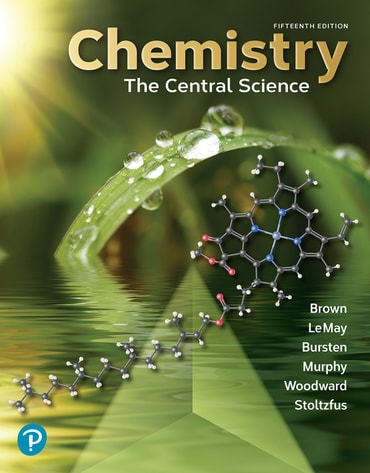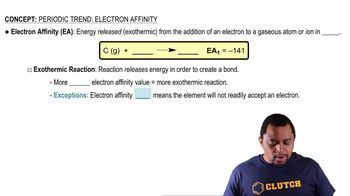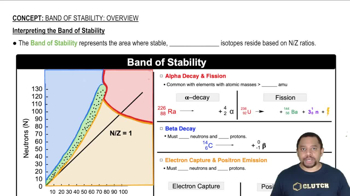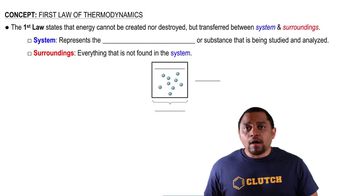Which of the ions Ni2+, Fe2+, Co3+, and Pt2+ has an electron configuration of 𝑛𝑑6(𝑛=3,4,5,…)?
a. Ni2+
b. Fe2+
c. Co3+
d. Pt2+
e. More than one of these

 Verified step by step guidance
Verified step by step guidance



Which of the ions Ni2+, Fe2+, Co3+, and Pt2+ has an electron configuration of 𝑛𝑑6(𝑛=3,4,5,…)?
a. Ni2+
b. Fe2+
c. Co3+
d. Pt2+
e. More than one of these
a. Write an equation for the second electron affinity of chlorine.
b. Would you predict a positive or a negative quantity for this process?
Write equations that show the processes that describe the first, second, and third ionization energies of an aluminum atom. Which process would require the least amount of energy?
Based on their positions in the periodic table, predict which atom of the following pairs will have the smaller first ionization energy: (a) Br, Kr (b) C, Ca (c) Li, Rb (d) S, Ge (e) Al, B.
Write equations that show the process for a. the first two ionization energies of lead and b. the fourth ionization energy of zirconium.